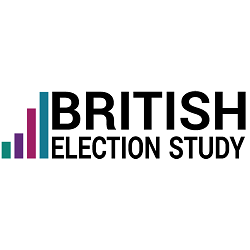This note accompanies the release of the British Election Study face to face survey (version 1.0).
Dataset and documentation
The dataset and additional documentation are available to download here.
Citation
Fieldhouse, E., J. Green., G. Evans., H. Schmitt, C. van der Eijk, J. Mellon and C. Prosser (2015) British Election Study, 2015: Face-to-Face Survey [computer file], November 2015. DOI: 10.5255/UKDA-SN-7972-1
The face-to-face survey
The face-to-face survey is an address-based random probability sample of eligible voters living in 600 wards in 300 Parliamentary Constituencies in England, Scotland, and Wales. 2,987 people completed the face-to-face survey. The fieldwork for the survey was conducted by GfK between May 8th 2015 and September 13th 2015 and achieved an overall response rate of 55.9%. The face-to-face dataset also includes a self-completion Comparative Study of Electoral Systems (CSES) module that was answered by 1,567 respondents. Full details of the methodology and fieldwork are available in the technical report that accompanies the data release. Full details of the questionnaire can be found in the codebook which also accompanies the data release.
Weights
To ensure that the BES face-to-face survey is representative of the population (18+ adults in Great Britain who are eligible to vote) the data were weighted. Two weights were applied: design weights to correct for unequal selection probabilities and post-stratification weights which account for differing levels of response from various groups in the population. For the main survey we include two versions of the combined selection and post-stratification weights – the weights as originally calculated and the weights capped at the 2nd and 98th percentiles, to reduce the effects of any extreme weights. We recommend using these capped post-stratification weights.
The data file contains 4 weight variables, as follows:
- wt_sel_wt – selection weights (including capping)
- wt_combined_main – combined main study weight (capped selection plus uncapped demographic weights)
- wt_combined_main_capped – combined main study weight (capped selection plus capped demographic weights)
- wt_combined_CSES – combined CSES weight (capped selection weight plus demographic weighting)
Future releases
At the time of the release of version 1.0 of the data two tasks are still ongoing which will affect future releases of the data and some analysis of the current data:
- We are still conducting our vote validation exercise, which involves checking survey respondents against the marked electoral register. Any analysis of turnout using self-reported turnout in the face-to-face survey may be potentially biased by misreported turnout and so we advise users to wait until our validation exercise is complete before finalising any analysis of turnout.
- Most important issues are coded using a machine learning algorithm trained on previously coded responses to the question in other BES surveys. We include the predicted categories for all responses where the algorithm can assign a category with more than 50% certainty. This means that there are 855 responses that are not assigned an automatic code. We will be manually coding these responses in future data releases. We suggest that users proceed with caution when using the auto-coded responses and check the raw text responses to make sure that the responses fit with the analysis they are conducting.
Contextual data
As with the British Election Study Internet panel, the face-to-face survey can easily be linked with Constituency level contextual data using the 2015 BES Constituency Results file (http://www.britishelectionstudy.com/data-object/2015-bes-constituency-results-with-census-and-candidate-data/). The results file can easily be merged with the survey data by matching observations on the ‘pano’ (Press Association Constituency ID) variable.
The British Election Study
The British Election Study 2015 is managed via a consortium of the University of Manchester, The University of Oxford, and The University of Nottingham. The Scientific Leadership Team is comprised of Professors Ed Fieldhouse, Jane Green, Hermann Schmitt, Geoff Evans and Cees van der Eijk. The team is supported by researchers Dr Jon Mellon and Chris Prosser, and also by BES 2015 consultant Professor John Curtice (University of Strathclyde). The BES 2015 is working in close collaboration with colleagues within the Universities of Manchester, Oxford and Nottingham, and is partnering with a wide variety of affiliated datasets and projects (and proposed projects) to link BES voter data to other data on election candidates and campaigns.

